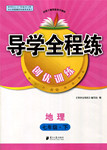题目内容
【题目】听第8段材料,回答小题。
(1)What is the probable relationship between the spearkers?
A.School friends.
B.Teacher and student.
C.Librarian and library user.
(2)Why does Jim suggest Mary buy the book?
A.It's sold at a discount price.
B.It's important for her study.
C.It's written by Professor Lee.
(3)What will Jim do for Mary?
A.Share his book with her.
B.Lend her some money.
C.Ask Henry for help.
【答案】
(1)A
(2)B
(3)C
【解析】

练习册系列答案
 导学全程练创优训练系列答案
导学全程练创优训练系列答案
相关题目